Nude, 1924
Pastel on paper
28 x 46.5 cm at sight (61 x 78 cm with the frame)
Signed and dated lower right
Rare work that can be dated from the first years from Mané-Katz. BIOGRAPHY His childhood was totally imbued with Jewish culture. His father, who was in charge of the synagogue of Kremenchug (Chamach, in Yiddish), educated him according to the precepts of the orthodox Jewish religion, wishing him to become a rabbi. The young Emmanuel learned to draw in secret. He first left his native shtelel to study at the Vilnius School of Fine Arts, but ignorant of the secular world, he returned quickly to the family home. Encouraged by an artist from Odessa, he first entered the School of Decorative Arts in Myrhorod, at the age of sixteen, then enrolled in 1911 at the Kyiv School of Fine Arts and was introduced to European culture. He arrived in Paris at the age of nineteen in 1913 and attended classes in Fernand Cormon's studio. Eager to join the foreign legion when the war was declared, he was refused because of his small size. He then traveled across Europe, visiting the museums where he apprenticed to the old masters and more particularly to Rembrandt. He discovered the paintings of his contemporaries, the Fauves, including that of André Derain who had a decisive influence. Back in Paris in 1921, the artist, who had forged a style, had to find in the traditional Judeo-Slavic thematic the source of his inspiration. He made his first solo exhibition in 1922 at the Percier Gallery. He gradually affirmed himself as one of the painters of the Jewish soul alongside his elders from the School of Paris, Amedeo Modigliani and Chaim Soutine and exhibited in many Parisian salons and galleries, as well as exhibitions of the Friendship Group including Jeanne Besnard-Fortin, Serge Charchoune and Kostia Tereshkovitch. His workshop in the rue Notre-Dame des Champs, inherited from Othon Friesz, will be later transmitted to his principal pupil, the caricaturist Henri Morez. He is naturalized French in 1928. The art of Mané-Katz seeks to maintain the living culture of the Torah. His career in the École de Paris and in the Montparnasse group was more orthodox than that of Chagall, for example. Mané-Katz asserted himself as the great painter of the diaspora. Witness to the dispersion of the people of Israel, Judeo-Slavic folklore, Yiddish literature, Mané-Katz in his exile, attests to his fidelity to his original tradition. He is the painter of rabbis, ghettos, and righteous, that of dispersion, true witness and poet of his people. He brought with him to the West this world of Talmudists, traveling musicians following processions, married, prophets, craftsmen. Although he does not want to be only a Jewish painter and has dedicated works to the flowers, to the landscapes of Paris, Vendée and Brittany, he remains an interpreter of Jewish communities in Central and Eastern Europe. Despite many stays in Israel, he can not integrate into this new world and will never paint the new reality of Israel fighting and proud. In his canvases painted in Israel one finds always his imagery of the landscapes of Ukraine and old rabbis buried in his memory. The city of Haifa in Israel has dedicated a museum on Yefe Nof Street.


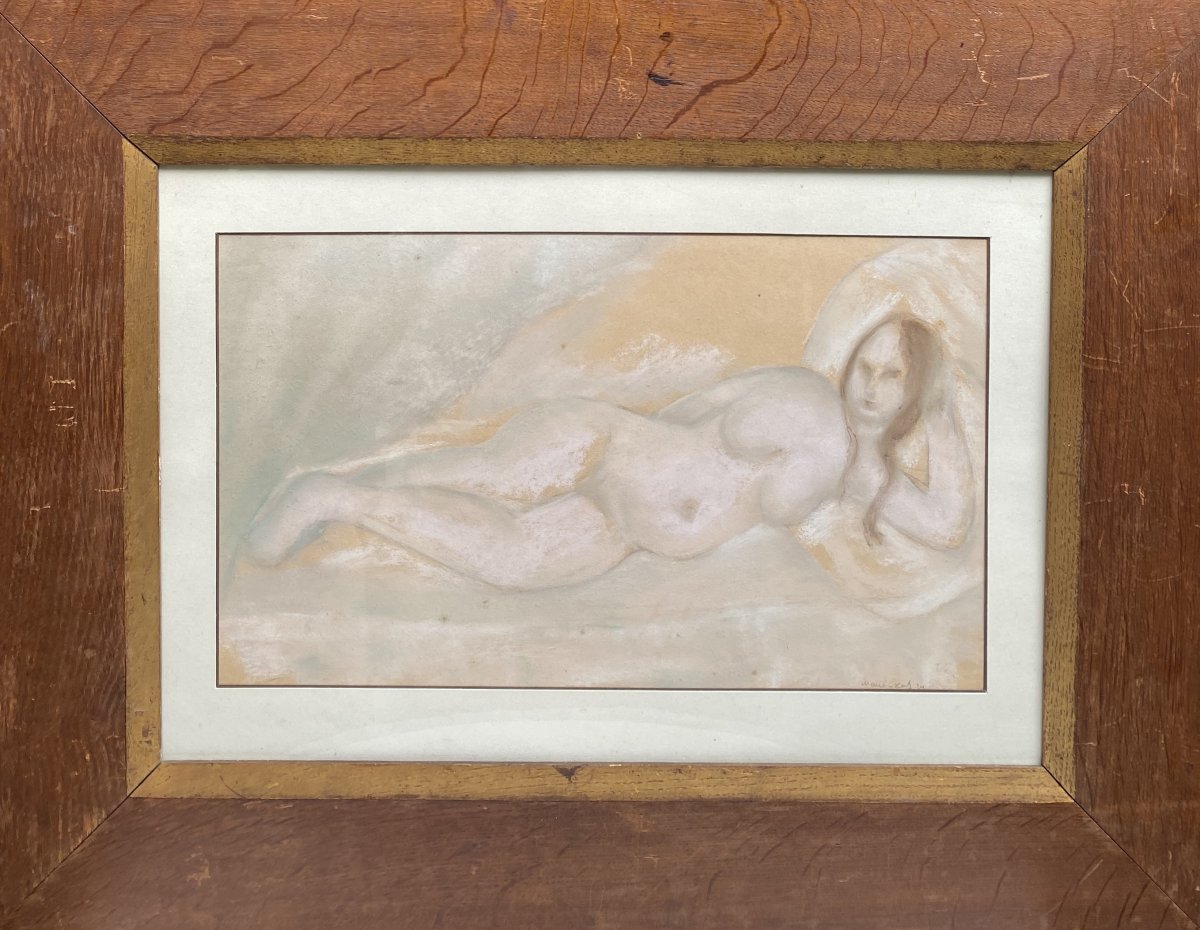
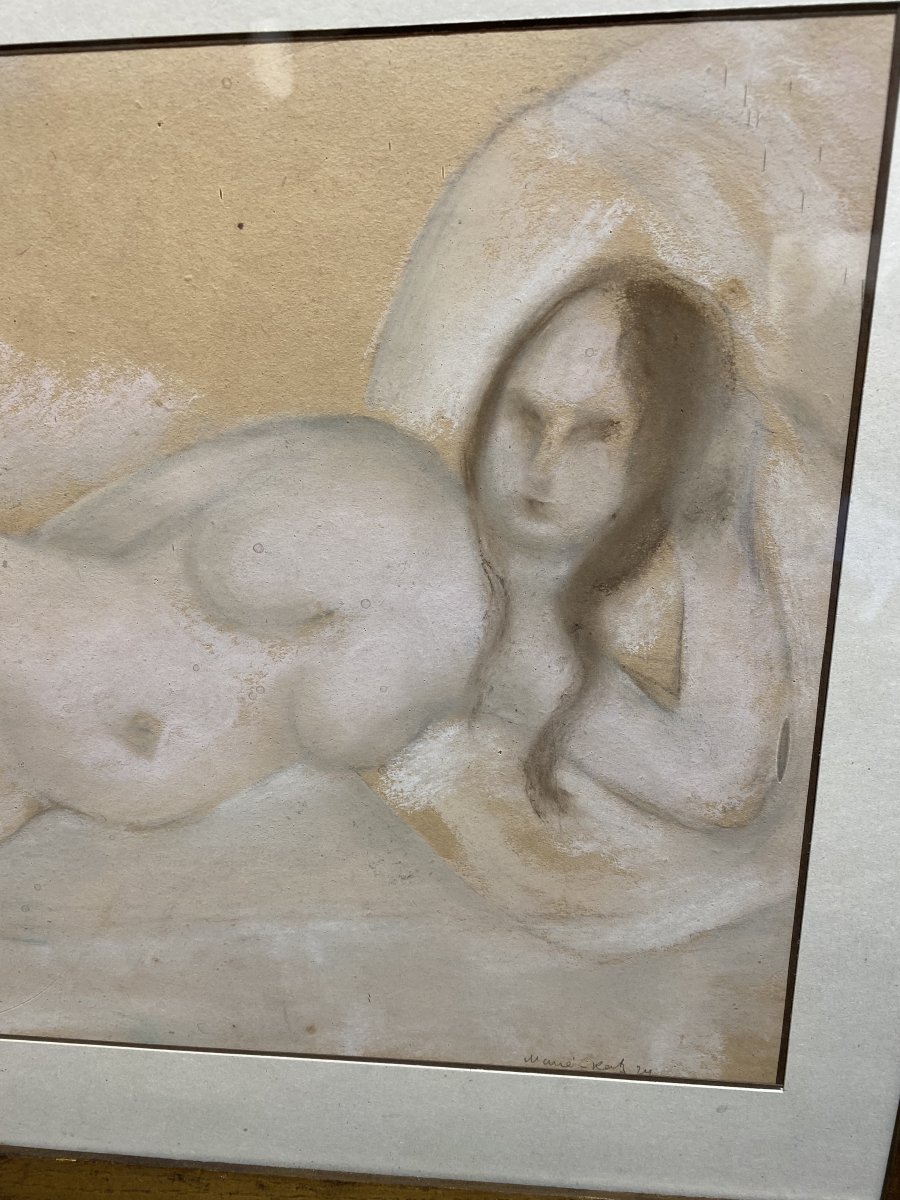



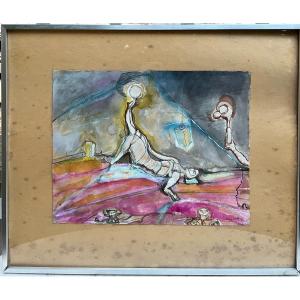




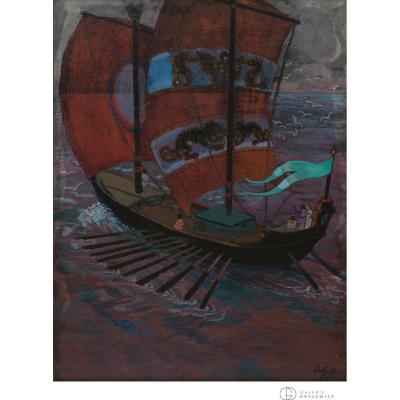




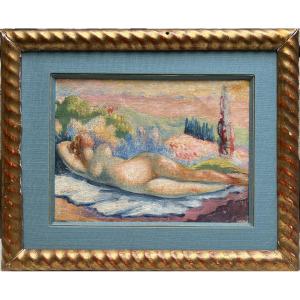
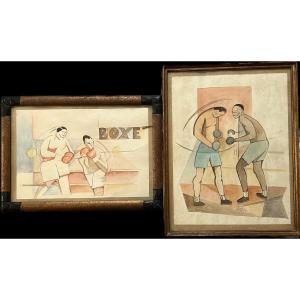
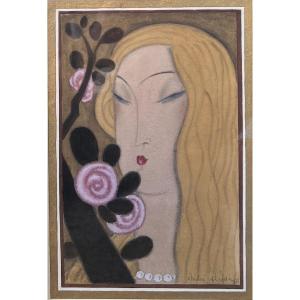

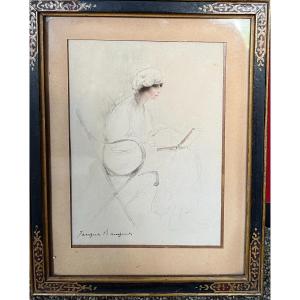
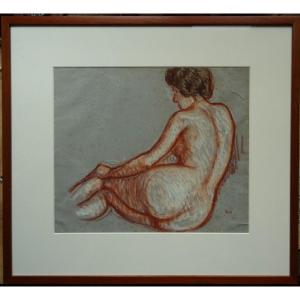







 Le Magazine de PROANTIC
Le Magazine de PROANTIC TRÉSORS Magazine
TRÉSORS Magazine Rivista Artiquariato
Rivista Artiquariato